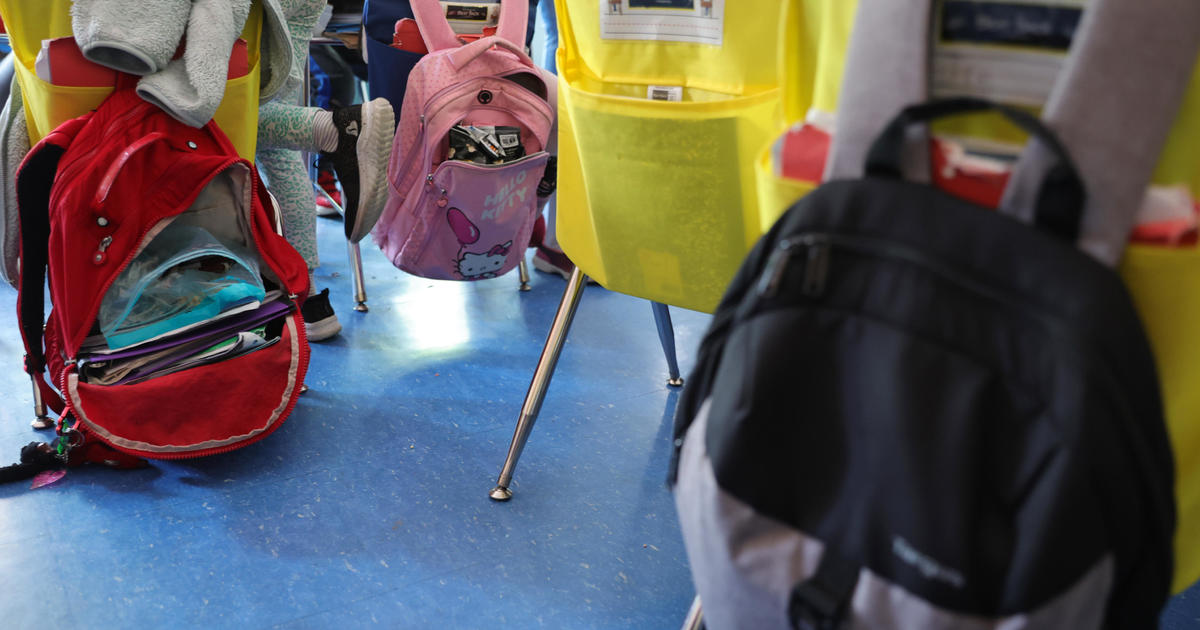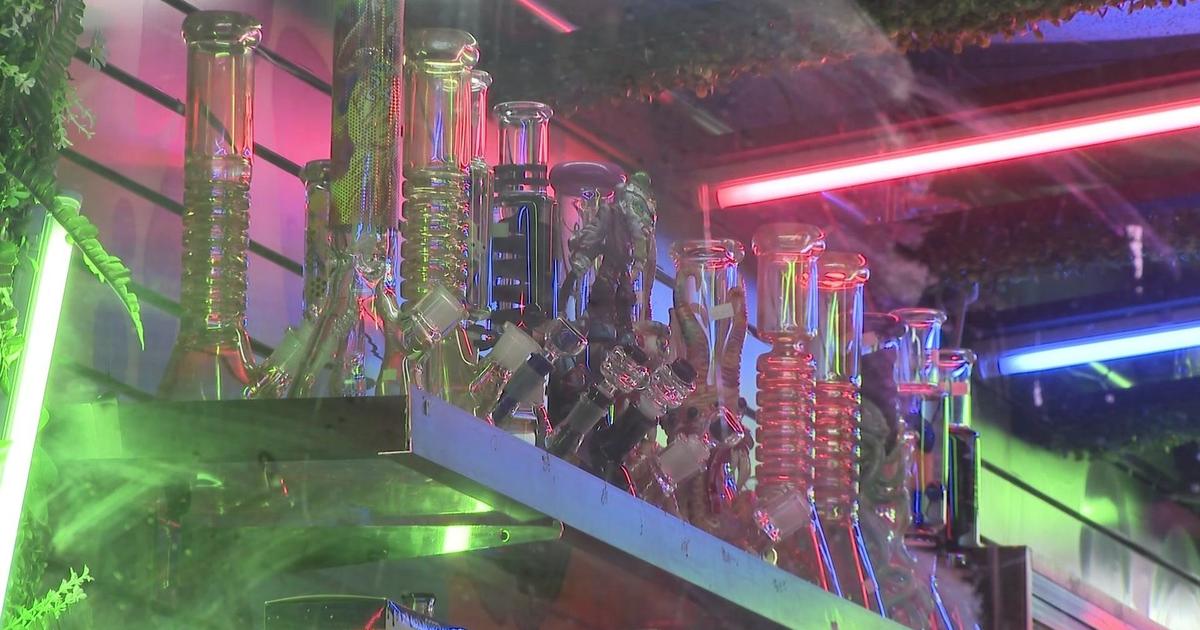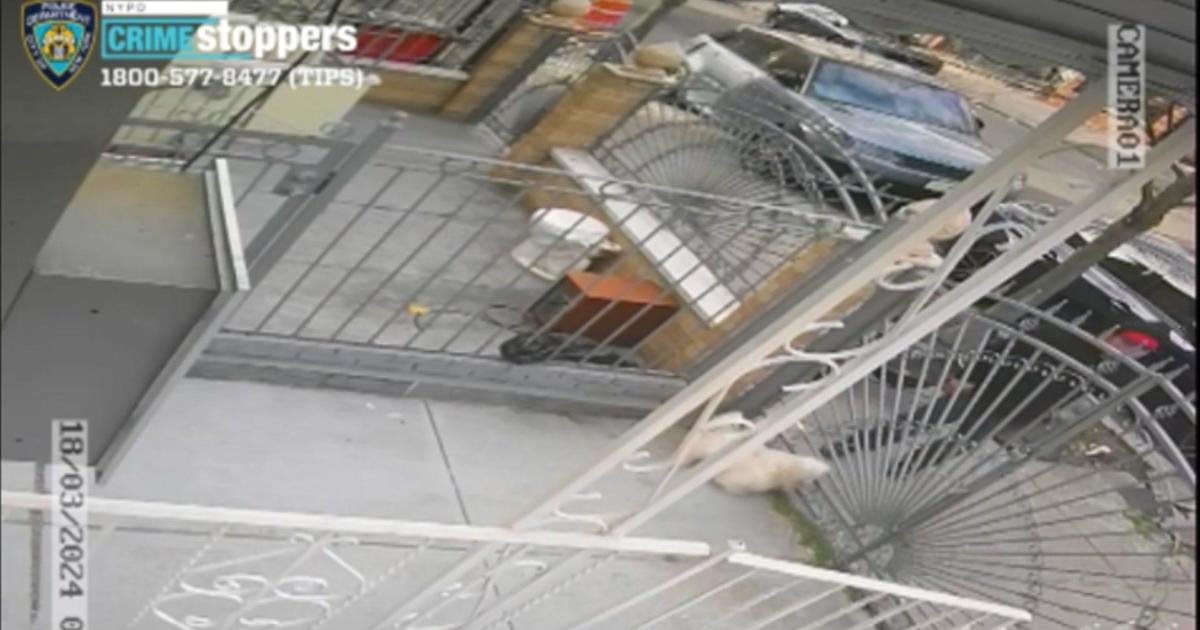Eye On Politics: Bill De Blasio Calls For Tax On The 'Wealthiest New Yorkers'
NEW YORK (CBSNewYork) - New York City Public Advocate and mayoral hopeful Bill de Blasio has called for the richest New Yorkers to pay a little more in taxes.
The Democratic former city councilman from Brooklyn spoke with WCBS 880's Steve Scott in the Eye on Politics segment on Tuesday, part of a continuing series of interviews with those seeking to hold the city's top elected office.
De Blasio was asked why he believes he's the best choice for mayor.
"I think it comes down to this. We can either continue a direction in this city where a lot of people are being left out. I always say we're living a tale of two cities and lot of working class and middle class people can't make it anymore in New York City," he told Scott. "Or we can change and actually do the things we need to create affordable housing, to create jobs, to fix our schools."
Eye On Politics: Bill De Blasio Calls For Tax On The 'Wealthiest New Yorkers'
"I think, for example, if we're serious about making changes in this city, we're going to demand [from] the real estate industry the kind of affordable housing we need so that people can live in the neighborhoods they love. I think we're going to have to demand of those who are wealthy, people who make a half million [dollars] or more, a little more in taxes so we can fix our schools," he said. "These are the kind of changes we need and I'm ready to make them."
About his tax on what he called the "wealthiest New Yorkers," he said "I think it's time that that they give us a little more so we can make the kind of investments we need for our future."
"Right now, our school system is failing a lot of our kids, and I'm a public school parent myself. I have to tell you, I see the disparities and the problems in our school system. But with some help from the wealthiest New Yorkers, we could actually make fundamental changes," he said. "For example, universal pre-K, full day pre-K guaranteed to every child in the city, after school guaranteed to every middle school student."
"This is the plan I outlined in October - a tax on the wealthy so we can make foundational investments in our schools that really will change the future of the city," he said. "Band-aids aren't going to work for public education. We need to do something more fundamental if we want to turn it around."
At a series of public meetings being held by CBS New York around the city, voters have been saying that in order to get a good education for their children, they need to either pay $40,000 a year for private schools or move to the suburbs or a trendy zip code.
"I think it's increasingly true and I think that's part of why we need some fundamental change. You can't have a school system where some kids get a great education and other kids get left behind on a regular basis. That's why I think an investment in early childhood education would be a difference maker and a great equalizer," de Blasio said.
"You know, when a child at the age of three of four gets really consistent help, they're able to learn in a way you can't learn later in life. They're able to get that head start that makes a huge difference," he said. "But we don't have the resources right this minute to do that. That's why if we tax those who make a half million or more, we're in a position to make the kind of investment that turns schools around so you don't have that reality you just described, so parents... will know... they're guaranteed a pre-K seat. That's a huge advantage right there. They'll also know the whole school system is starting to move forward and it's a place that every kind of child can find a good education."
Most of the city's unionized employees are working under expired or nearly expired contracts. How would de Blasio achieve piece with the unions?
"It's not going to happen the way Bloomberg's been doing it. The mayor's spent years now attacking, but really not making any progress in the relationship between the city and its workforce. I respect the men and women who do the work. As I said, I'm a public school parent myself and that's one of the reasons I respect teachers and I respect custodians - all the people who do the work in schools and so many other parts of the city," he said.
De Blasio elaborated on the importance of respect.
"You show that respect and then you come to the bargaining table in private, where real decisions get made, not through the media. You know, the mayor has loved to put out pronouncements in the media about municipal labor, but that doesn't really move us forward. The way we're going to solve our fiscal crisis is at the bargaining table and I think if labor is treated with respect, they'll do exactly what happened back in the 1970s. In that fiscal crisis, labor came together with the city and helped us to find a solution that could move us forward," he said.
What about labor's willingness to give anything back?
"I think when I show labor leaders the actual numbers we're facing and I make clear to them that I want to keep the folks on the job working for our city that we have now, we're going to have to find a way to save some money. We're going to have to find a way to get some more productivity. But if we do that, we can keep people at work and we can find a way to deal with the contracts that are still open," he said.
That includes back pay, de Blasio said.
"They've gone, in many cases, three or four years without any kind of increase," he said. "With enough changes, enough productivity, we can get to that. So, I think it is very much a cooperative enterprise. They mayor has to set the tone. The mayor has to say 'Look. This is what I have to give and nothing more.' But working together with labor, I think we can find some fair solutions."
"But beating up on them publicly gets us nowhere," he added.
De Blasio said the NYPD should have an inspector general, but not a federal monitor.
"I want us to solve our own problems, put our own house in order," he said. "I think we need an inspector general and a racial profiling bill to both fix the problems right now - the overuse of stop-and-frisk - but also send a clear message to the federal government, to the Justice Department. They don't need to intervene here. We will fix our own problems."
"When I say we're living a tale of two cities, probably that sense of disparity is sharpest when it comes to policing," he said. "When it comes to policing, there are communities in this city where stop-and-frisk is hardly ever employed. There are other communities where it's wildly overemployed and it's created a real division between police and community."
"That has to end," he added. "If we're going to be safe for the long-term, we have to have a good relationship between police and community."
As mayor, De Blasio would not keep Ray Kelly as police commissioner.
"I've worked with Ray Kelly for many years and I have to tell you, Steve, he's a very talented guy. We all owe him a debt," de Blasio said. "But some of the policies he's pursued lately, particularly the overuse of stop-and-frisk, really haven't worked for the city and he's not going to change at this point and I respect him. But we need new leadership."
"If we get police-community relations right, this is the key to our future security," he added. "In every neighborhood, there are people ready, willing, and able to work with the police, provide them with the information they need to find out where the bad guys are, to find out where the weapons are. That can only happen if we create that partnership. Right now, that's not happening in a lot of communities. So, we need a new police commissioner who's really devoted to healing that relationship and taking us forward."
Scott ended the interview on the subject of bike lanes, asking if they are worth the parking spots and vehicular traffic lanes that they eliminate.
"They are, in the final analysis," said de Blasio. "My district in Brooklyn when I was in the City Council was one of the first to have bike lanes and they do help calm down the traffic. They do help make neighborhoods safer and more and more people are turning to bikes as an option, which is good for the environment, obviously good for people's health."
"The way Mayor Bloomberg did it, as usual, was often insensitive to communities," he added. "But that doesn't mean bike lanes aren't a good idea. Yes, we should expand them deeper into the outer boroughs. I think we gain a lot of benefit from it."
You May Also Be Interested In These Stories



